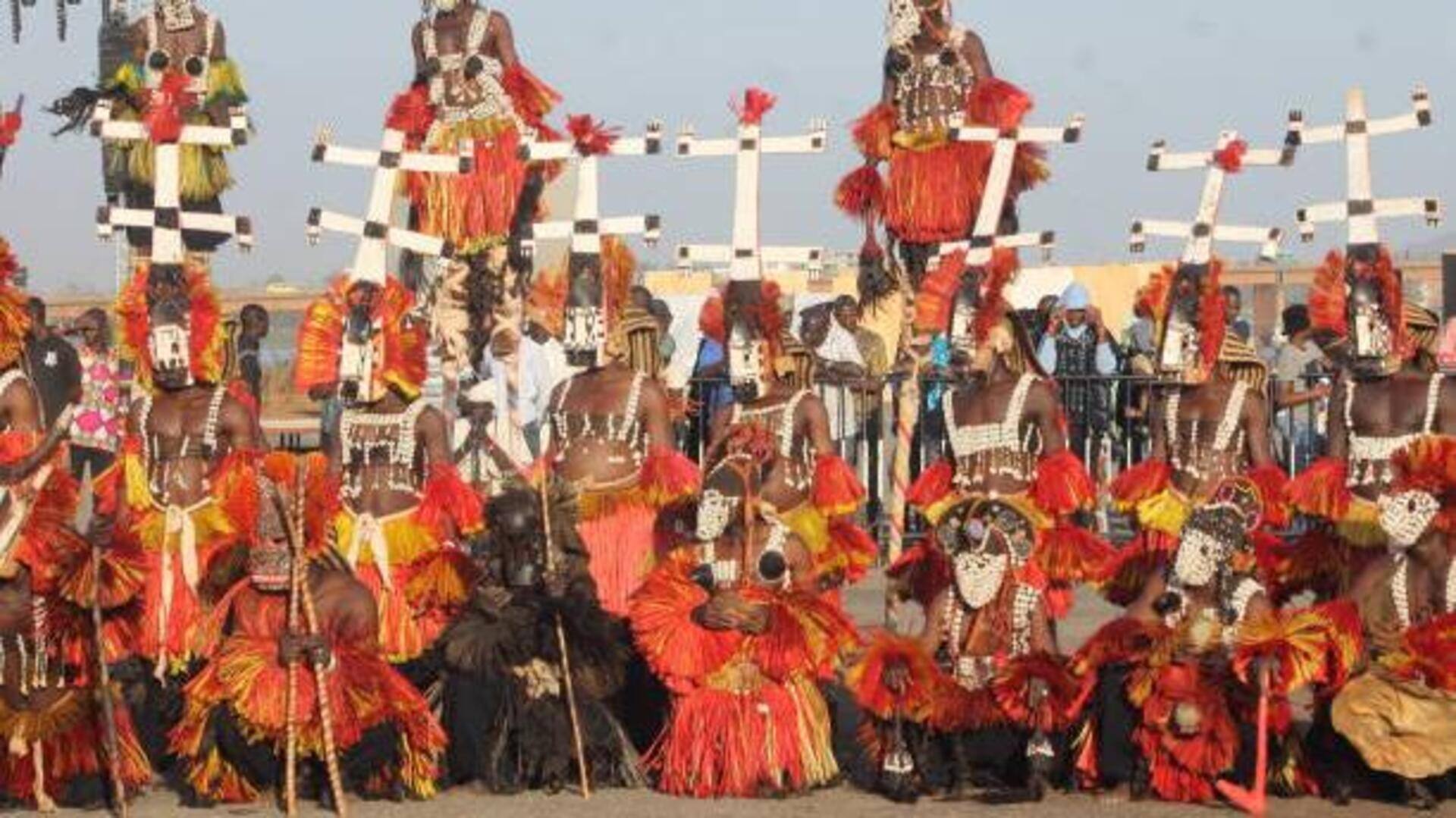
Discovering Mali's Dogon Country festivals
What's the story
Mali's Dogon Country, located in the heart of West Africa, is world-renowned for its colorful festivals and deep cultural heritage, drawing visitors from around the globe.
This region offers a rare glimpse into the past, with ancient traditions and rituals passed down through generations.
These festivals aren't just celebrations; they reveal the profound connection the Dogon people have with their environment.
Mask dance
Mask dances of the Dogon
In Dogon Country, the traditional mask dance is a highlight, serving as a key component of ceremonies commemorating community events like funerals and initiations.
Carved from wood and elaborately decorated, these masks represent figures from Dogon mythology.
Witnessing these performances provides a profound glimpse into the spiritual beliefs and social structures of the Dogon people, revealing a cornerstone of their cultural identity.
Sirius mystery
The Sirius mystery celebration
The Dogon are famous for their astronomical knowledge, particularly their awareness of Sirius, the brightest star in our sky.
They celebrate this through the Sigui festival, which occurs only once every 60 years.
This event highlights their timekeeping and cosmology, uniting generations through sacred rituals and stories.
It provides a rare opportunity to witness the living transmission of ancient wisdom.
Dama festival
The Dama festival: A rite of passage
The Dama festival marks a significant rite of passage for young men transitioning into adulthood.
This multi-day event is characterized by intricate mask dances, singing, and feasting.
It serves as both a celebration and a solemn tribute to deceased ancestors.
For travelers interested in exploring the social dynamics of indigenous societies, the Dama provides a profound glimpse into communal relationships and individual responsibilities.
Agriculture ceremony
Agricultural ceremonies: Honoring earth's bounty
Agriculture is the lifeblood of the Dogon, bookended by ceremonies for the planting and harvest seasons.
Both events are rich in rituals, all geared toward invoking the blessings of plentiful crops.
Singing, dancing, and offerings are made to thank the spirits for fertility and abundance.
Experiencing these ceremonies underscores the deep connection between humans and nature that is woven into the fabric of Dogon culture.
Participation tips
Tips for respectful participation
While experiencing Dogon Country during festivals, it's crucial to exercise respect and sensitivity toward local traditions.
Always ask for permission before taking photographs or videos of ceremonies or dances.
Dress modestly, adhering to community standards, especially at religious or spiritual events.
By hiring local guides, you not only enrich your visit but also contribute to the sustainability of these unique cultural practices.